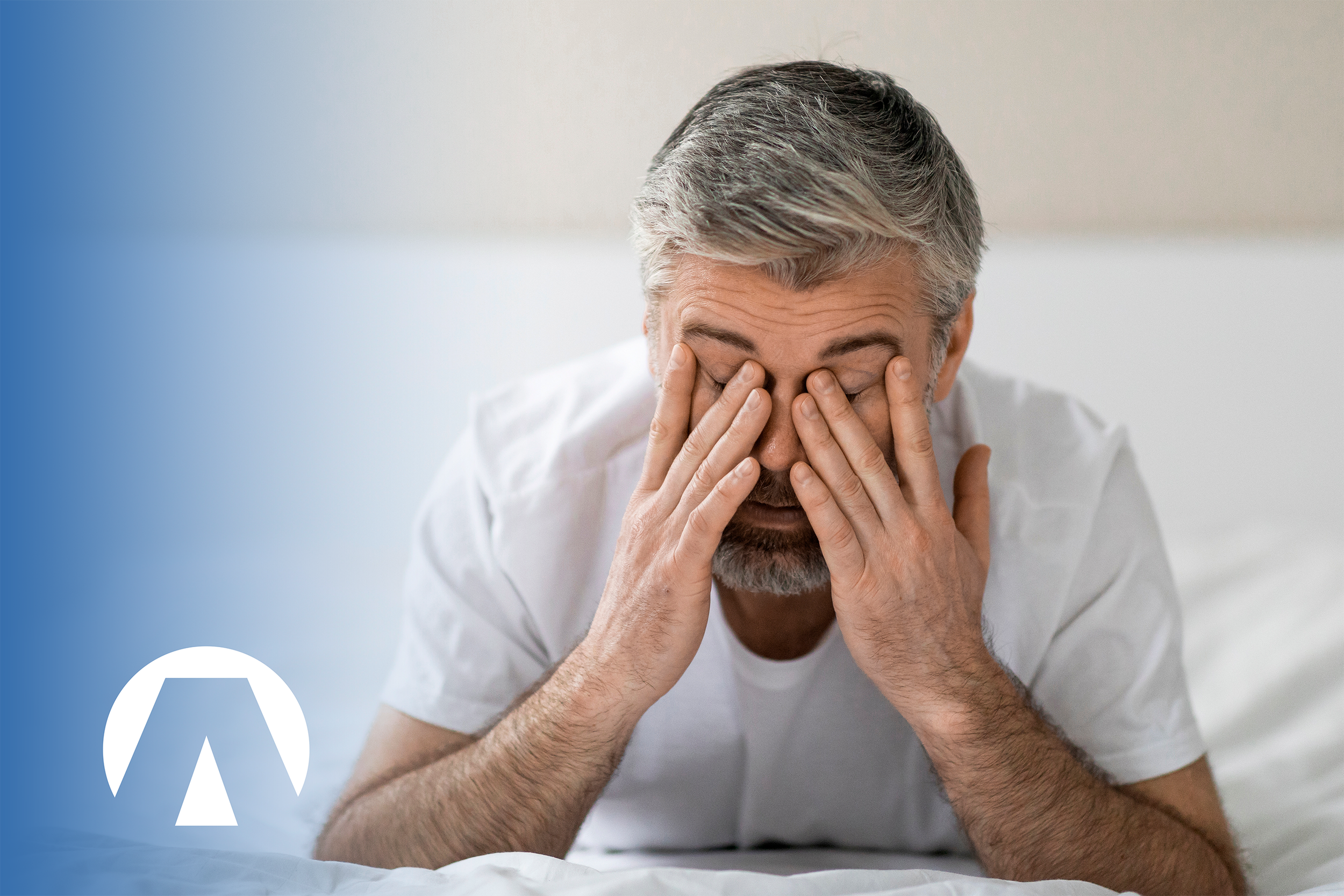Why You’re Always Tired: Could Low Testosterone Be the Cause?
Everyone feels tired from time to time, but if you're constantly dragging through your day, needing a nap after work, or struggling to find energy for your family, it may be more than just a busy schedule or poor sleep. “One of the cardinal symptoms of testosterone deficiency is fatigue and low energy. Not just in men—women too. It’s one of the most common things we see in our patients,” said Dr. Michael Koehler.
At Affinity Whole Health, many patients first walk through our doors not because of weight gain or libido issues, but simply because they feel completely worn out. This is not unusual—fatigue is one of the most well-documented symptoms of testosterone deficiency.
How Low Testosterone Affects Energy
Testosterone is a hormone commonly associated with muscle mass and sexual health, but its impact on energy metabolism is just as significant. When testosterone levels fall below optimal levels, both physical and mental fatigue can increase.
For men, symptoms often include:
Midday energy crashes
Difficulty recovering from exercise
Trouble concentrating or staying motivated
Reduced drive to be active or social
Women can experience similar symptoms, especially those in their 20s to 40s who may not be aware that testosterone plays a key role in female health as well. While estrogen and progesterone often get more attention in women’s health, testosterone supports energy, muscle tone, and mood in both sexes.
"I’m Just Tired All the Time"—A Common Patient Story
In our clinics, fatigue is one of the most frequently reported symptoms on new patient intake forms. Whether it’s a man in his 40s feeling wiped out after a full workday, or a woman in her 30s struggling to keep up with daily demands, the pattern is similar: they just don’t feel like themselves anymore.
Once patients begin testosterone therapy—if testing confirms deficiency—the results can be profound. Many report feeling energized again within weeks. They’re able to get through the day without naps, enjoy better sleep, and even start exercising again, creating a positive feedback loop of better health.
Why It Takes Time to Feel the Benefits
Testosterone therapy is not a quick fix. After beginning treatment, testosterone levels in the blood may rise quickly, but the benefits don’t kick in overnight. That’s because the hormone needs to bind to androgen receptors found throughout the body—in muscle, bones, the brain, and more.
It typically takes 6 to 8 weeks to start feeling noticeable changes in energy, mood, or physical performance, although sometimes it is faster. We often compare the process to a dimmer switch, gradually turning the lights back on. Every person responds at a different rate based on age, health status, and their level of deficiency.
Why More Energy Leads to Better Health
When testosterone levels improve, patients often find they have more motivation to move their bodies—whether that’s walking, lifting weights, or simply being more active throughout the day. Dr. Andrew Huberman says, “testosterone makes effort feel good.” This increased activity leads to:
Better sleep
Greater muscle retention
Improved metabolic rate
Enhanced mood and clarity
In short, optimizing testosterone doesn't just provide energy—it amplifies everything else you're doing to feel better.
Testosterone Deficiency in Women
There’s a common misconception that testosterone is only important for men. In reality, women produce and rely on testosterone too—just in smaller amounts. And while women don’t usually experience testosterone deficiency the same way men do, fatigue, low sex drive, and decreased muscle tone are common indicators.
We frequently see women in their 20s, 30s, and beyond who report chronic fatigue and score low in free testosterone. While estrogen and progesterone are vital for reproductive and mood-related functions, testosterone plays a critical role in energy production, strength, and motivation.
When prescribed appropriately, women respond very well to low-dose testosterone therapy. Unlike the high doses associated with athletic abuse, women receive a small fraction of the male dose, keeping their treatment both safe and effective.
Dosing Matters: Why One Size Doesn’t Fit All
Testosterone therapy is highly personalized. At Affinity Whole Health, we tailor dosages based on bloodwork and symptom response—not on a fixed "target number."
Our goal is always the lowest effective dose that relieves symptoms without side effects. Follow-up labs and regular check-ins with your Patient Care Coordinator and medical provider ensures your protocol evolves as your body does.
Final Thoughts
If you're dealing with unexplained fatigue—regardless of your age or gender—low testosterone could be a contributing factor. Fatigue is not just an inconvenience. It’s a signal that something in your system may be off balance. The good news is, you don’t have to settle for feeling tired all the time.
With proper evaluation and hormone optimization, many patients regain the energy, focus, and vitality they thought they had lost for good.

